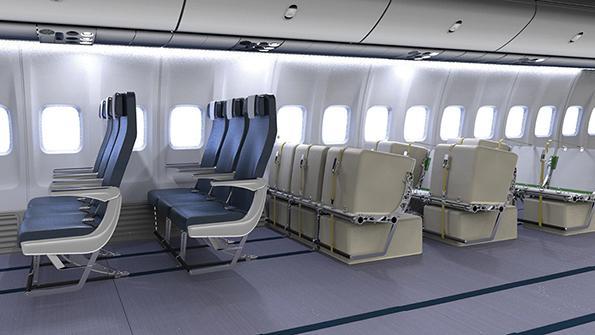
Cargo Combos
Company: HAECO Cabin Solutions
Specifications: HAECO Cabin Solutions is offering four adaptations for carrying cargo in the passenger cabin, which it says can be combined for both single- and twin-aisle aircraft to achieve “an ideal operational payload.” The first two allow carrying up to 240 lb. of cargo either on top of existing economy seats or on the floor in between rows of seats. It is also offering an all-in-one seat frame that installs in economy seat tracks and can hold 500 lb., and a palletized variant that sits on the cabin floor and can hold 1,000 lb. HAECO says it has been in discussions with at least 50 airlines globally about the modules, including a launch customer in Asia, and that demand is rising.
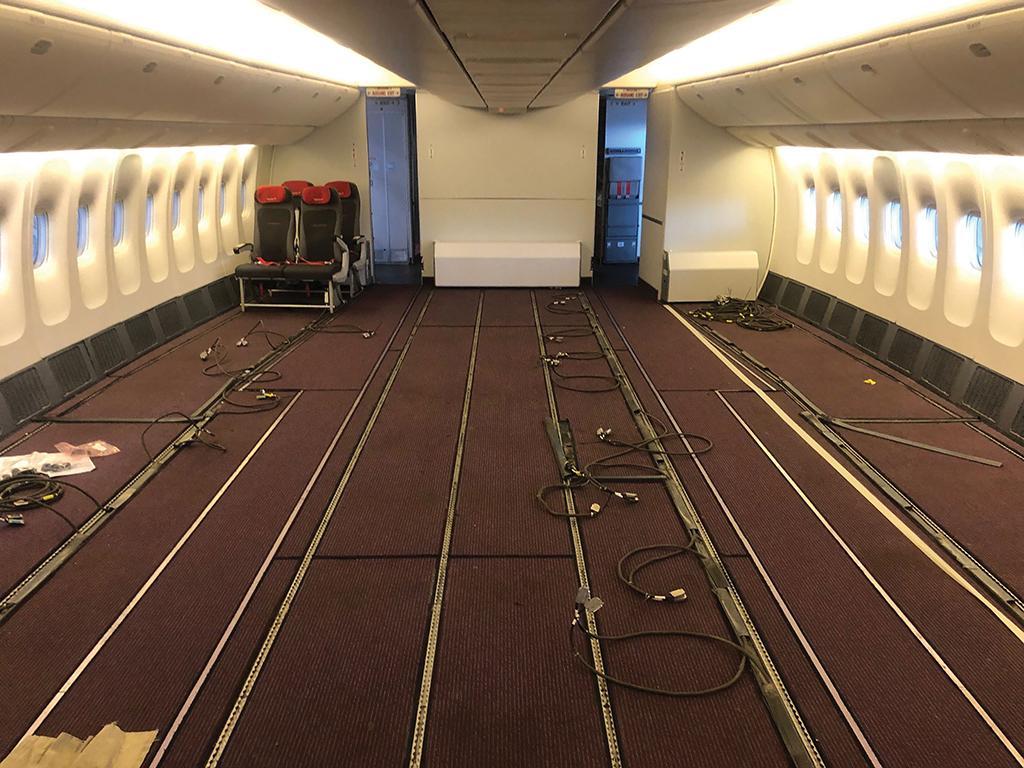
777 ‘Preighters’
Company: Austrian Technik
Specifications: Austrian Technik has performed temporary conversions of two Boeing 777 aircraft from passenger to cargo configurations to help Austrian Airlines transport more cargo during the COVID-19 crisis. To create these temporary “preighters,” Austrian Technik mechanics removed 270 of 306 passenger seats from all travel classes in each aircraft, including disconnecting inflight entertainment-system wiring, which took approximately 500 hr. to complete per aircraft. Austrian says the conversions increase freight capacity by around 35%, and the “preighters” can be converted back to the passenger format once travel demand increases.
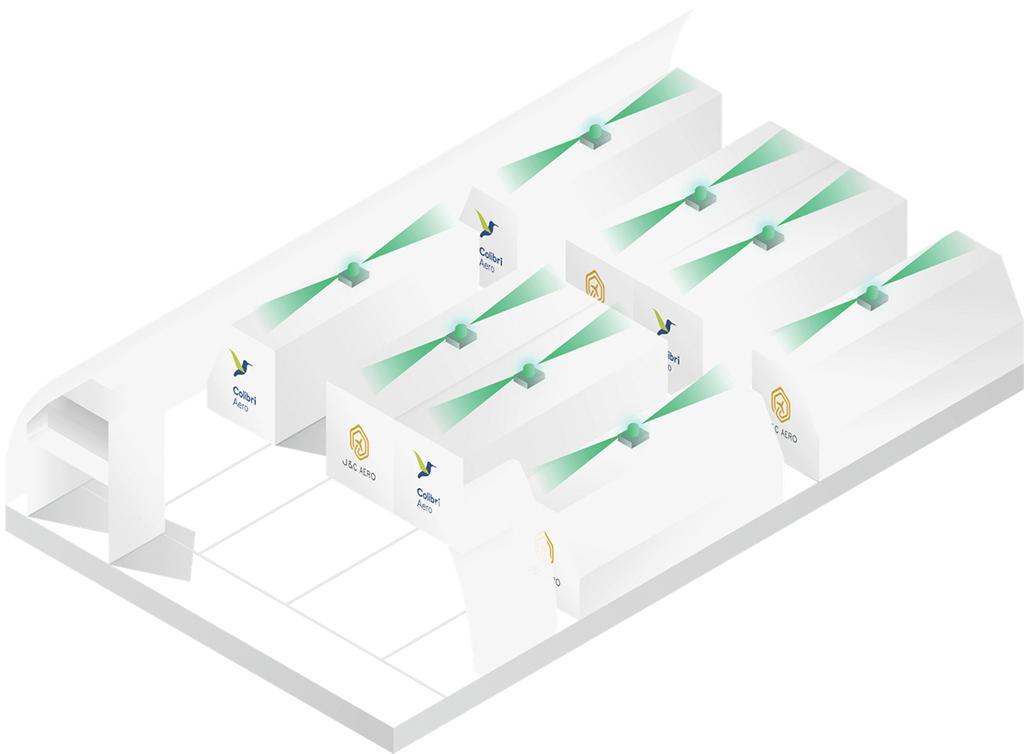
Cargo Containers
Company: Colibri Aero/J&C Aero
Specifications: Colibri Aero and J&C Aero have developed cargo containers for widebody passenger cabins that enable quick cargo conversions. The containers, which come in five sizes and are equipped with a smoke detector, are designed to temporarily replace passenger seats and carry up to 1,870 lb. of cargo. The companies say that a typical Airbus A330 cabin could be converted in 24 hr. and will hold 36 containers. These are currently designed for Airbus A330/A340 and Boeing 767/777 cabins, but the companies are planning to upgrade the modification for other aircraft types and size variations. Earlier this year, the companies also launched a cargo seat-bag product that enables cargo to be carried on seats in narrowbody cabins.
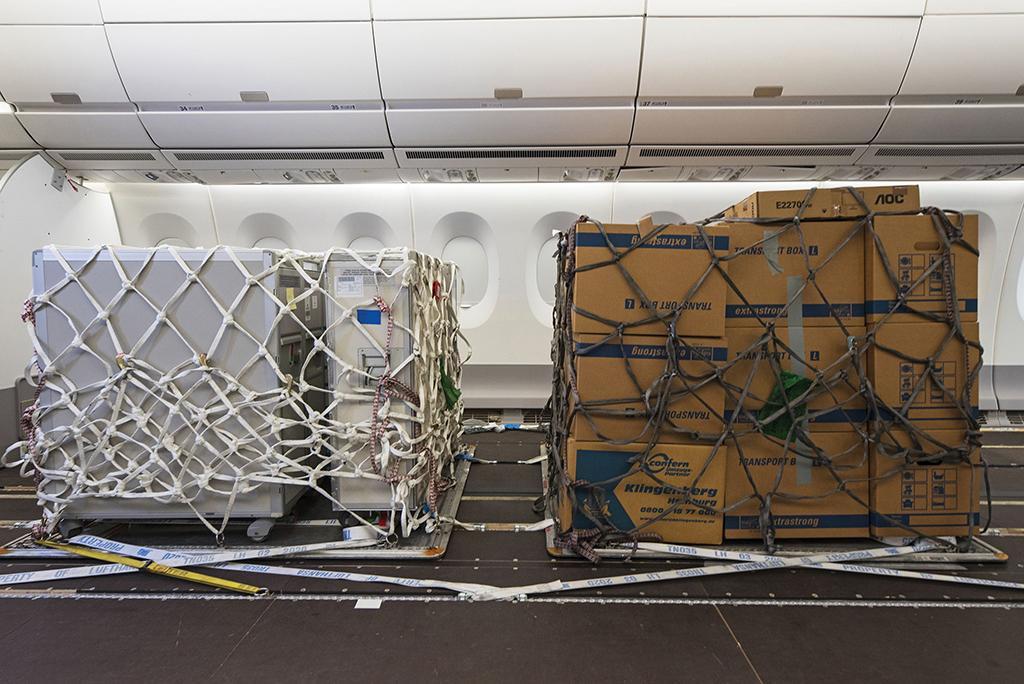
Airbus Cargo Modification
Company: Airbus
Specifications: Airbus has developed a modification for A330- and A350-family aircraft that enables airlines to install freight pallets directly onto cabin floor seat tracks. Packaged as an Airbus Service Bulletin, the modification includes removal of economy-class seats and inflight entertainment, installation of cargo pallets and associated safety equipment, and reinstallation of the original passenger cabin elements once airlines choose to revert back to passenger operations. Airbus says the modification facilitates quicker, easier loading/unloading and reduces wear and tear on seats compared to solutions that entail loading cargo onto seats.

Fast-Tracked Freighters
Company: Lufthansa Technik
Specifications: Earlier this year Lufthansa Technik (LHT) fast-tracked efforts to gain regulatory approval for passenger-to-cargo modifications due to high interest from airlines. The MRO has more than 15 projects for various aircraft types in the pipeline, including Airbus A330-300 and A380 aircraft. It is now targeting supplemental type certificates (STC) for all major aircraft types, which it hopes to have by September. For now, it is offering tailsign-specific engineering orders, which it says customers can transfer to STCs later without major adjustments.
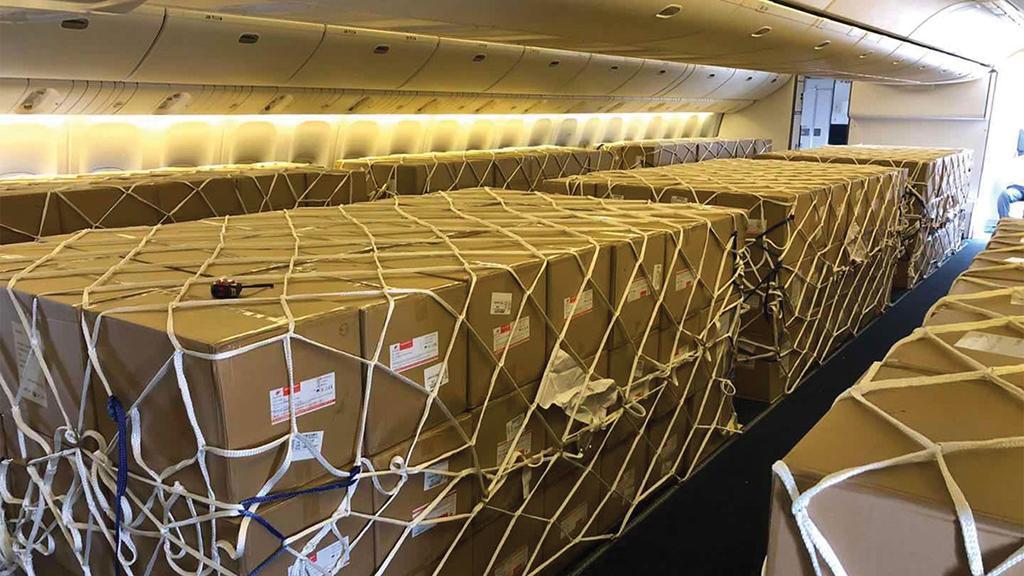
Quick-Turn Conversions
Company: Collins Aerospace
Specifications: Collins Aerospace has developed a quick-turn solution to convert passenger aircraft for cargo; it is available for any passenger aircraft model and can be completed in as little as seven days. Collins provides the engineering and certification services, kit parts required for modification and on-site technical support to perform the conversion, which entails removing seats to allow a higher volume of cargo carriage on the main deck floor. Its Integration Engineering facility in Everett, Washington, offers engineering order solutions for rapid conversion and supplemental type certification for cabin modifications to carry greater weight and various cargo types as demand changes. Collins says aircraft can be easily converted back to passenger configuration as desired.
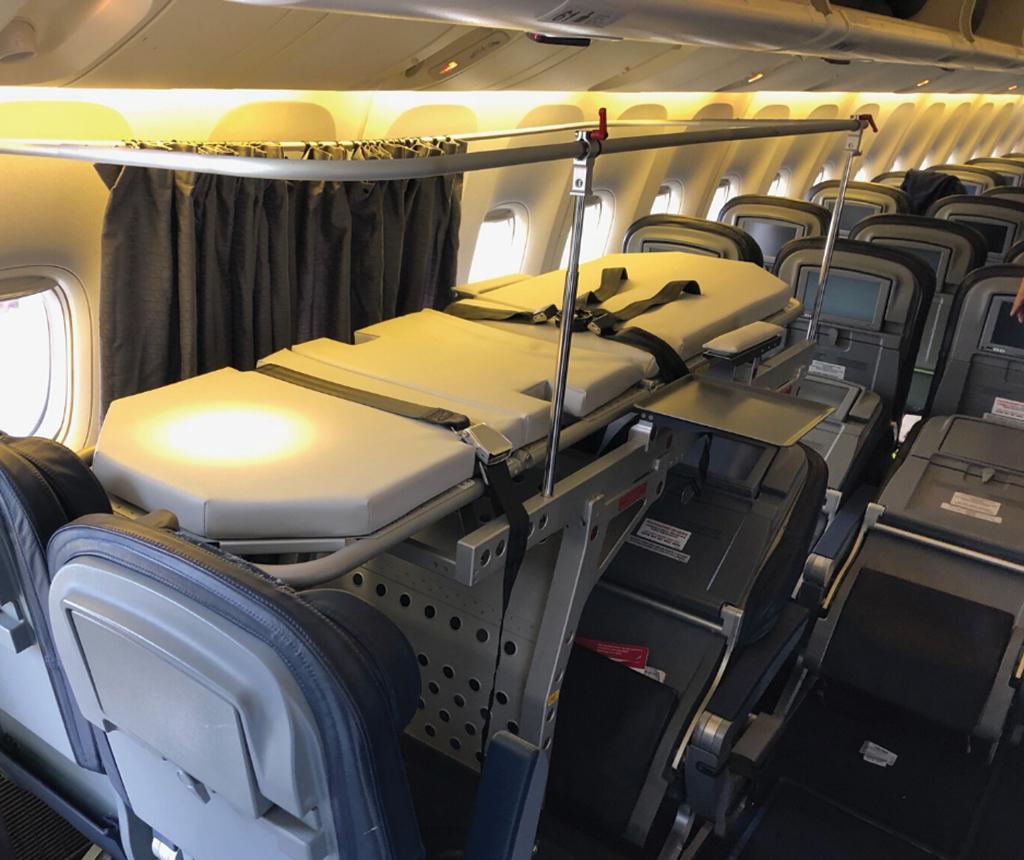
Medical Cargo Mods
Company: Magnetic MRO
Specifications: Magnetic MRO’s Part 21J team is offering cabin modifications for COVID-19 medical cargo transportation in passenger cabins. The modifications include fixing cargo boxes on seats with special straps, removal of passenger seats and installation of medical stretchers on various aircraft types. Magnetic MRO is performing these modifications at its Tallinn, Estonia, base or at client locations as travel is allowed, but it is also offering installation kits to customers so modifications can be performed by their own teams. Several modifications have been completed for clients in Europe, Africa and Asia since the COVID-19 crisis started, and Magnetic MRO says it has more in the pipeline.
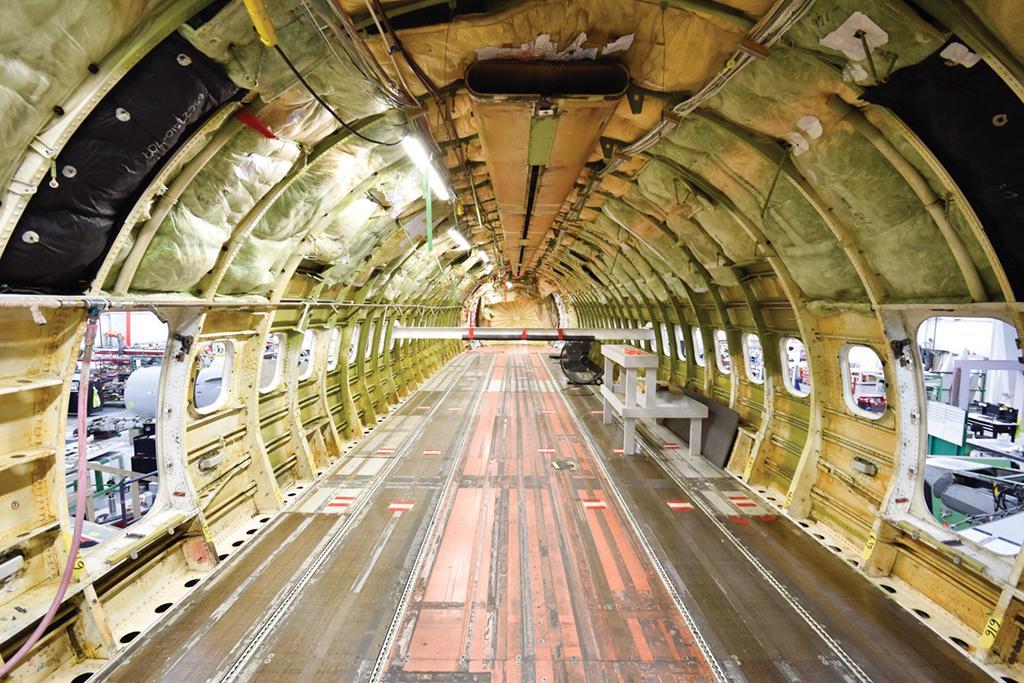
Full Freighter Conversions
Company: Aeronautical Engineers Inc.
Specifications: For airlines looking to permanently rethink fleet operations, Aeronautical Engineers Inc. (AEI) designs, engineers and certifies passenger-to-freighter conversions, manufactures parts and partners with MROs to install conversions at its authorized AEI Conversion Centers across North America and China. AEI says it has seen an uptick in demand for Boeing 737 Classic freighter modifications since the COVID-19 outbreak, and it has booked 10 firm orders for 737 conversions to start work this year, including projects already begun for AerCaribe, Airwork and Allied Air. AEI has performed more than 500 passenger-to-freighter conversions and developed more than 130 FAA-approved supplemental type certificates.
marketplace.aviationweek.com/company/aeronautical-engineers-inc
As demand for cargo operations rises during the novel coronavirus pandemic, these companies are offering cabin conversion products and services.
You can read the full Inside MRO article here.
